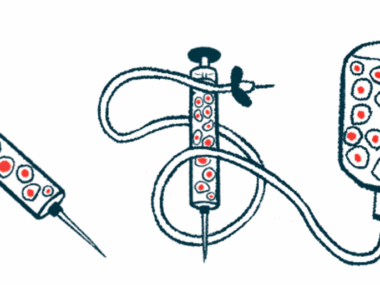UK platform trial to test repurposed therapies for Parkinson’s
Recruitment is open for up to 1,600 people across 40-plus sites
Written by |

A new trial platform that will test multiple disease-modifying treatments for Parkinson’s disease is now recruiting participants in the U.K., Cure Parkinson’s has announced.
The program, called EJS ACT-PD, will initially test two therapies, telmisartan and terazosin, against a shared placebo. A third treatment, ursodeoxycholic acid, is expected to be tested in 2026. All of them are approved for other medical conditions. They were chosen by an international committee of scientists, physicians, and advocates that reviews and prioritizes promising therapies for clinical testing each year.
Recruitment for the first phase of the program is open for up to 1,600 people with Parkinson’s disease. The first sites launched in London and Newcastle, with more than 40 sites across the U.K. expected in the coming months.
“Thanks to this innovative clinical trial programme, more people with Parkinson’s than ever before will have the opportunity to participate in disease-modifying research,” Helen Matthews, CEO of Cure Parkinson’s, said in a press release. “The start of recruitment to the EJS ACT-PD trial is an enormous achievement for everyone involved and offers real hope to people living with Parkinson’s and their families.”
Platform aims to accelerate treatment development
Parkinson’s disease is caused by the progressive loss of dopaminergic neurons, which are the nerve cells responsible for producing dopamine, a signaling molecule involved in motor control. Although several medications can help manage Parkinson’s symptoms, there are no disease-modifying treatments that can slow, stop, or reverse disease progression.
The EJS ACT-PD (which stands for Edmond J. Safra Accelerating Clinical Trials for Parkinson’s Disease) platform is designed to accelerate the search for more effective treatments. It does this by testing multiple therapies in separate groups, and compares them all with a shared placebo.
For any new treatment to be approved, it must go through several phases of clinical trials. Transitioning from Phase 2 trials, which look at a medicine’s biological effect and safety, to Phase 3 trials, designed to test long-term safety and efficacy in much larger groups, can be challenging.
The organization said that in 2023, only three Phase 3 trials for potentially disease-modifying therapies were started. By using a common placebo group, EJS ACT-PD may facilitate the transition of therapies from Phase 2 to Phase 3 trials, without the need to launch a trial for each potential therapy.
The trial will assess the medication’s ability to slow Parkinson’s progression. Participants may also choose to join smaller side studies that explore ways to improve symptom tracking, for example, through wearable devices, or that may identify new biological markers of disease progression.
“It is really exciting to see such a large clinical trial platform that will be testing multiple agents at the same time. We have the option to take out drugs that aren’t working and replace them with alternatives,” said Simon Stott, PhD, director of research at Cure Parkinson’s. “This new format will allow for the continuous testing of new therapies that could potentially slow, stop or reverse Parkinson’s.”
Participants will take part in the study for up to 36 months (three years), and the study will evaluate patients every six months, in person at a trial site or remotely from home. Appointments include questionnaires and video calls to assess Parkinson’s symptoms and discuss side effects.
Blood samples from the participants will be collected to assess markers of drug activity, safety, and efficacy, and predictors of disease progression, among other measures.
The clinical trial is led by University College London and funded by a Medical Research Council and National Institute for Health and Care Research partnership, Cure Parkinson’s, The Michael J. Fox Foundation, Parkinson’s UK, The John Black Charitable Foundation, Gatsby Charitable Foundation, and Van Andel Institute.
Katy O’Malley, who lives with Parkinson’s and is a member of the EJS ACT-PD Patient and Public Involvement and Engagement group, said: “Having Parkinson’s can be frightening and lonely; it’s easy to lose hope. We need a treatment to slow or stop the progression of this disease, urgently.”



